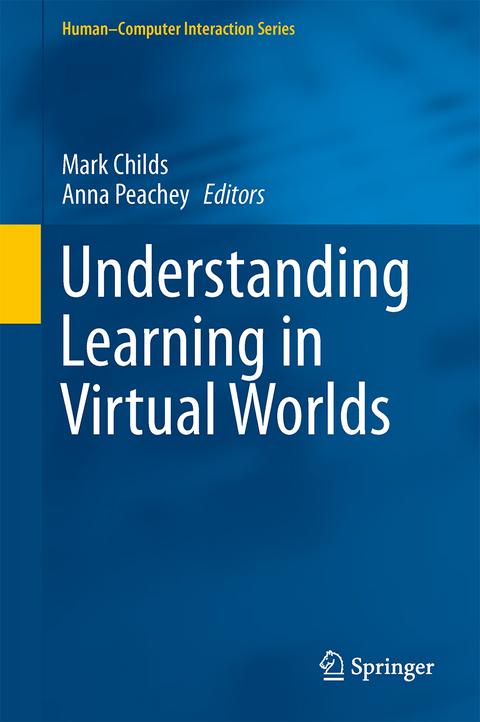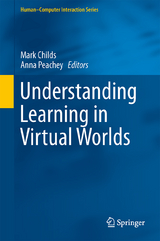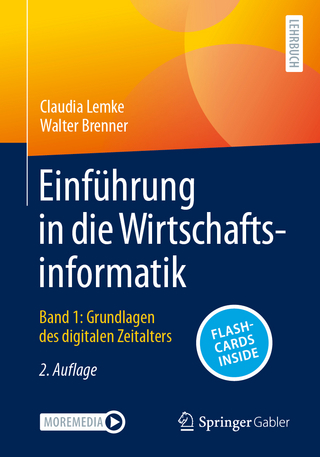Understanding Learning in Virtual Worlds
Springer London Ltd (Verlag)
978-1-4471-5369-6 (ISBN)
Included in this book are chapters that explore the philosophical and methodological underpinnings of understanding learning in virtual worlds, identify and analyse the factors that support learning in these environments, and present case studies that demonstrate some of the various ways in which virtual worlds can be applied to facilitate learning and teaching. The links between learning in a virtual world and learning in the physical world are made apparent throughout, and the authors reveal how understanding learning in one informs the other. Understanding Learning in Virtual Worlds is an important book not only to those who teach in virtual worlds, but to anyone for whom understanding learning, in all its forms, is of interest.
Mark Childs is a Senior Research Fellow for Elearning at Coventry University, UK, as well as working freelance within academia. Since 1997 he has worked on more than 30 projects involving technology-supported learning; as a researcher, consultant, evaluator, manager and principal investigator, at Coventry and in previous posts at the Universities of Wolverhampton and Warwick. Alongside his research he has also supported the delivery of a range of in-service professional development programmes, acting as an instructor, supervisor and evaluator. He also works as an education consultant and evaluator for a range of private and public sector organisations, including Hewlett Packard, the Field Museum of National History in Chicago, Ravensbourne College and JISC. Anna Peachey spent four years (2006-2010) researching identity and community in virtual worlds as a Teaching Fellow with the Centre for Open Learning in Maths, Science, Computing and Technology at The Open University, UK. She has published and presented widely on virtual worlds as sites of learning, and continues to teach and research with The Open University within a portfolio of other projects as an independent consultant.
Editors’ Introduction.- An Alternative (to) Reality.- Guidelines for Conducting Text Based Interviews in Virtual Worlds.- Designing for Hybrid Learning Environments in a Science Museum: Inter-professional Conceptualisations of Space.- An Examination of Student Engagement, Knowledge Creation and Expansive Learning in a Virtual World.- The Strength of Cohesive Ties: Discursive Construction of an Online Learning Community.- +SPACES: Serious Games for Role-Playing Government Policies.- Avatars, Art and Aspirations: The Creative Potential for Learning in the Virtual World.- Second Language Acquisition by Immersive and Collaborative Task-based Learning in a Virtual World.- Do Virtual Worlds Support Engaging Social Conferencing?
| Erscheint lt. Verlag | 11.9.2013 |
|---|---|
| Reihe/Serie | Human–Computer Interaction Series |
| Zusatzinfo | XXII, 179 p. |
| Verlagsort | England |
| Sprache | englisch |
| Maße | 155 x 235 mm |
| Themenwelt | Schulbuch / Wörterbuch ► Unterrichtsvorbereitung ► Unterrichts-Handreichungen |
| Geisteswissenschaften ► Philosophie ► Metaphysik / Ontologie | |
| Mathematik / Informatik ► Informatik ► Betriebssysteme / Server | |
| Informatik ► Office Programme ► Outlook | |
| Informatik ► Software Entwicklung ► User Interfaces (HCI) | |
| Sozialwissenschaften ► Pädagogik | |
| Schlagworte | Computing and Technology • Educational technology • Education and Virtual Worlds • Interviews in Virtual Worlds • Learning in Virtual Worlds • Second Life • Serious Games • Virtual Worlds |
| ISBN-10 | 1-4471-5369-3 / 1447153693 |
| ISBN-13 | 978-1-4471-5369-6 / 9781447153696 |
| Zustand | Neuware |
| Informationen gemäß Produktsicherheitsverordnung (GPSR) | |
| Haben Sie eine Frage zum Produkt? |
aus dem Bereich




